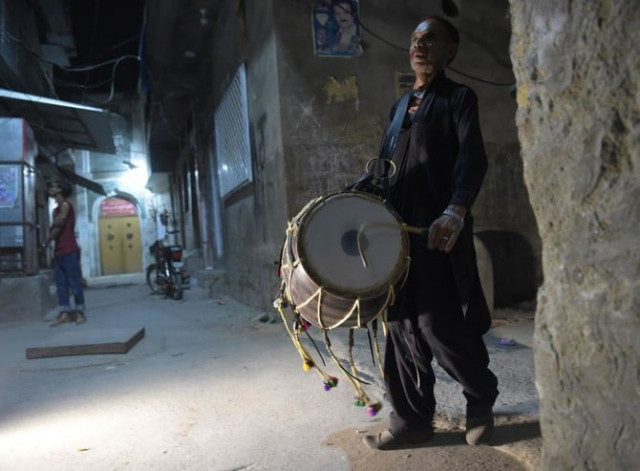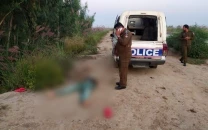Drumbeating tradition still alive in capital
In Ramazan, drumbeaters visit various streets usually around 3 to 4am

The centuries-old tradition of a drumbeater waking up people for sehri remains alive even in the federal capital.
For centuries, the majority of people would wake up to the loud drumbeats in the wee hours heralding the beginning of sehri time during Ramazan. However, with modern technology, this tradition has declined but is still kept alive by drum beaters like Faqeer Hussain.
Hussain still beats the drum at sehri and wakes up the people in sector G-7, Islamabad.
Talking to The Express Tribune he said “I feel very happy to wake the people up. I have never enjoyed any other event like this and feel that I am doing a religious activity. I do not perform this duty for the sake of money but only for the hereafter.”
He went on to add: “It’s not that the people of my area do not have modern equipment, they do have, but they want to keep this custom alive.”
The drumbeaters visit various streets, usually around 3 to 4am. Most of the time, they call out loudly, “Utho rozay daro” and make sure that the thunderous beat of their drum along with their slogans is loud enough to wake up the residents of a particular locality.
Those who perform this duty during the Ramazan, go from house to house to receive their reward at the end of the holy month. The locals give cash, clothes and rations of their free will, which helps them celebrate Eidul Fitr better.
Professor Chaudhry Rasheed Sal said: “Due to the use of advanced technology, the tradition of waking people up at sehri has changed as the majority of people now use alarms and digital clocks to wake up for sehri.” However, he said keeping the centuries-old traditions alive is a very positive activity and should be encouraged, adding that all these traditions make our country more beautiful.
He said even though people had modern devices to help them wake up, they wanted to keep the tradition alive and encouraged the ‘dhol wala’. In some areas, Qawwali performers are also seen in action visits from one street to another soon after iftar or before iftar.
Published in The Express Tribune, April 7th, 2024.



















COMMENTS
Comments are moderated and generally will be posted if they are on-topic and not abusive.
For more information, please see our Comments FAQ